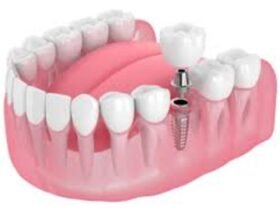Increasing health awareness has led to the increased use of dietary supplements like iron gummies, calcium, multivitamins, etc. People consider supplements containing various minerals and vitamins for multiple reasons. Some prefer products like gummies or pills to improve energy and focus, stamina, mental cognition, or immunity, while others meet their nutrition deficiencies.
However, what works best for you does not guarantee the same results for others because of specific body needs. The recommended vitamins for adults are different from those for kids or old people. Your body’s requirements vary. Here, you can learn more about these dietary supplements and their role in promoting human health. Understand the selection criteria for various vitamins according to your age.
What do Multivitamins Contain?
Multivitamins contain both essential and micronutrients, supporting mental and physical well-being. They are commonly rich in calcium, Vitamins B, D, C, Iron, magnesium, and other elements important for the body’s optimal performance.
Moreover, supplements also have micronutrients like thiamin, folate, riboflavin, B12, niacin, etc., for better stamina, metabolism, and daily functioning. All the nutrients strengthen the body‘s immunity against infections and reduce the chance of diseases.
How to Choose a Multivitamin
Taking a dietary supplement is beneficial only if you choose the right one that fits your body’s needs. The following factors help decide what is a good multivitamin.
-
Follow the Daily Value (DV)
This is the recommended dosage for a nutrient that our body needs daily. Maintaining this amount prevents deficiency and leads to overall health. People plan their meals and dietary supplements based on this percentage. Nutrients like iron, calcium, vitamin A, Vitamin D, etc., have various recommended daily dosages. You may exceed this limit without facing side effects to improve body functioning. However, you need to understand the concept of Upper Limit.
-
Checking the Tolerable Upper-Level (UL)
Our body needs nutrients in a specific quantity. The tolerable upper level is the criteria for taking any particular nutrient without side effects; this is the maximum limit. Look for all the ingredients along with the quantities in a supplement.
For example, the daily limit for magnesium in adults is 420 milligrams (mg). If you’re already on a diet offering high magnesium, ask if multivitamins have excessive amounts before picking any brand. If yes, go for an alternative one.
-
Restricted Diet Plans
Some people follow a restrictive diet plan like keto, vegan, or others for weight management. Other than weight loss, people with certain medical conditions are advised to plan meals only from specific food groups. They are more vulnerable to nutrient deficiency and severe complications in the long run.
Deciding the essential nutrients their diet lacks or has in minimum quality is relatively easy. After that, choosing supplements with these nutrients in abundance is highly effective.
-
Age-related Issues
Specific obvious age-related issues exist, like joint problems after the 50s and low collagen and melatonin production after the 30s. Deciding your supplements based on age is possible by anticipating the chances of a specific disease.
For example, increase the number of tablets offering B3, B5, B6, B9, B12, etc., after crossing 60 to face minimum sleep issues. A proactive approach towards age-related health issues results in an active lifestyle even after the 50s and 60s.
-
Gender-related Issues
Some diseases are more common in men, while women have a lower percentage and vice versa. Men are more vulnerable to heart issues, cancer, kidney issues, and other such diseases. Likewise, women are susceptible to depression, joint inflammation, sexually transmitted infections, etc. Considering the risk factors based on gender helps roll out the ideal vitamin to take as a supplement.
How to Choose Vitamin Supplements for Your Age?
Choosing the right vitamin supplements for your age is essential for maintaining optimal health, as nutritional needs change over time. Children and teenagers may require higher doses of calcium and vitamin D for bone development, while adults often need B vitamins for energy and metabolism. Seniors, on the other hand, benefit from increased vitamin D, calcium, and omega-3 fatty acids to support bone density and heart health. It’s important to consider lifestyle, diet, and any existing health conditions when selecting supplements, and consulting a healthcare professional can help ensure you’re meeting your specific nutritional needs.
Can You Smoke Shrooms? Exploring the Science and Side Effects
Smoking shrooms is not a safe or effective way to experience their psychedelic effects, as the active compound, psilocybin, breaks down under high heat. Unlike traditional methods of consumption—such as eating dried mushrooms or brewing them into tea—smoking does not lead to the desired hallucinogenic effects but may instead cause lung irritation and respiratory issues. Some users report experiencing mild nausea or headaches rather than a psychedelic trip. Given the lack of scientific research on this method, it’s best to stick to safer, well-documented ways of consuming magic mushrooms if one chooses to do so.
Final Thoughts
Vitamin supplements can speed up healing, mental processing, or physical fitness. With hundreds of options available, pick one according to your age, body needs, DV, UL, etc. In case of confusion, consult your medical health provider for the best choice for your body.

















Leave a Reply